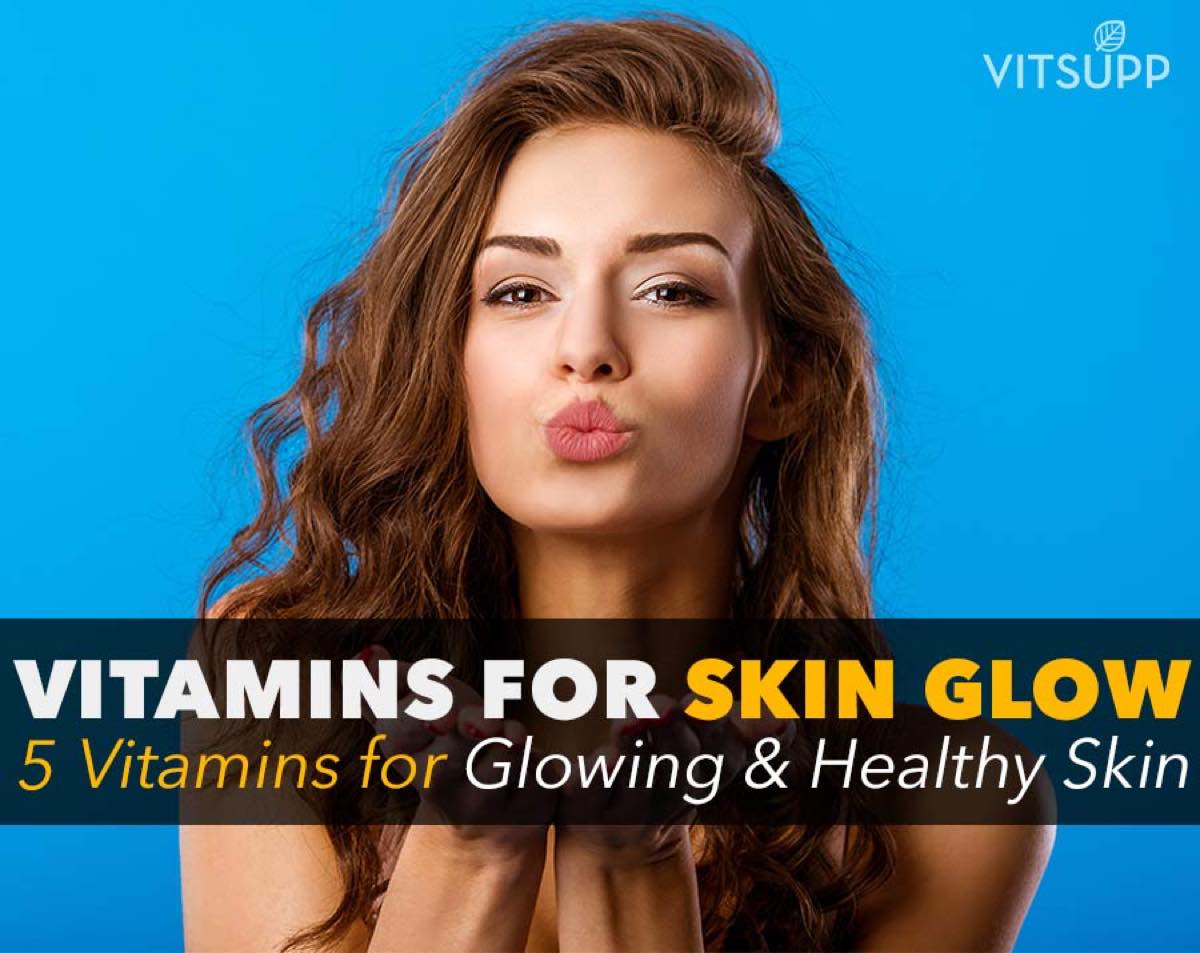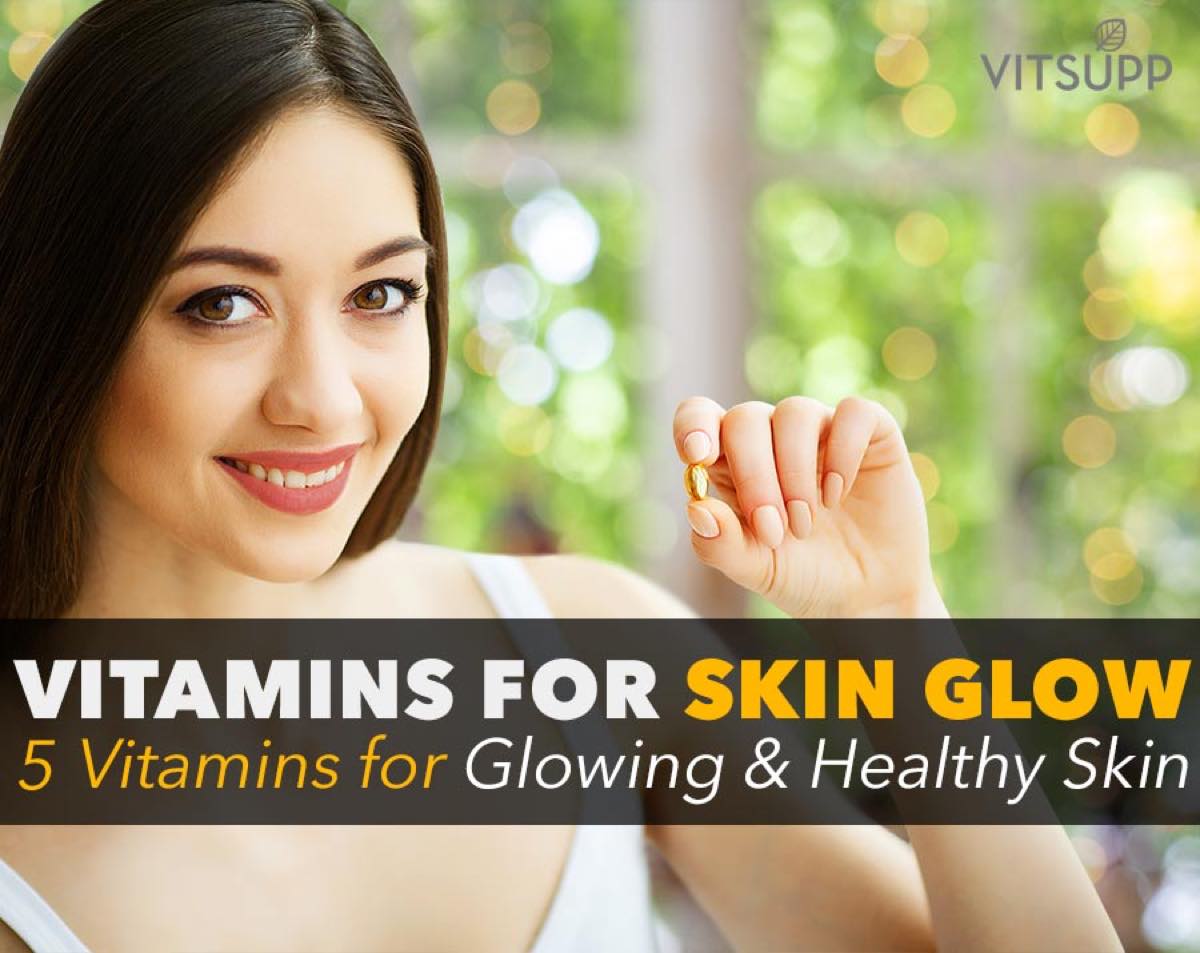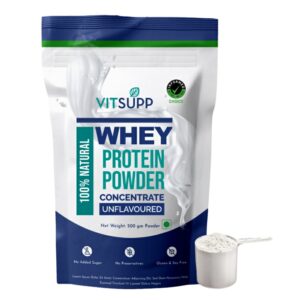There is no better makeup than having a wrinkle-free, blemish-free and glowing skin. But that’s talking about beauty that’s just skin deep. Let’s share a secret: glowing skin comes from the ensuing supply of essential vitamins. If you want to know what they are and where you can get them; read on.
Vitamins for skin
If you think externally applied creams and lotions can make your skin flawless, you are deceiving yourself.
After all, beautiful skin starts from the Inside-Out.
You probably already know that beauty is all about attitude and confidence. So before you start looking for skin-deep beauty, we recommend that you get comfortable with yourself. Adopting the right attitude towards life, building self-confidence and being comfortable with your body will set the health and beauty ball rolling.
This article is not about any quick fix pills, creams or lotions that will fix your beauty in a day or a week or a month.
As if, there is such a quick fix. Ha!, Never mind the tall claims of all cosmetic companies.
Research has repeatedly shown that our overall health condition has a lot to do with how our skin is. They are tightly coupled with each other. So if you are healthy, you will have flawless skin and vice versa.
Of course, you can slather on tons of chemicals and colors that pass as makeup these days and hide the real you from everyone. But at the end of the day when you wash off your face . . . you will know, even if nobody else does!
So what can we do to correct internal imbalances so that we achieve real outer and inner beauty?
We have a recommendation of 5 most essential nutrients that your skin cannot do without.

5 Vitamins for Glowing, Healthy and Beautiful Skin
It is a no-brainer that we should have a balanced diet so that we get all the vitamins we need to stay healthy. However, some vitamins are regarded as particularly beneficial for skin, and deficiency in those may lead to severe health problems.
Which vitamin is good for the skin?
These are vitamins A, B vitamins, vitamin C, vitamin E and vitamin K. Let us check out their importance one by one.
Vitamin A for Skin
Vitamin A contains retinoids and retinol, which are crucial for the cell-renewal process and overall skin health. It contains provitamin A carotenoids, which protect the skin again UV damage. These are also potent antioxidants, which fight free radical damages and slows down the ageing process. (source)
Vitamin A Benefits for Skin
Vitamin A reduces wrinkles and increases blood flow to the surface of the skin. It is vital for skin repair and rejuvenation.
It slows down the ageing by increasing the deposition of collagen. Vitamin A also makes the skin smooth and even-toned. It A corrects all skin conditions as it normalises skin functions. (source)
Vitamin A deficiency makes your skin rough and dry. Moreover, by encouraging the cell renewal process, vitamin A also reduces the chances of developing skin infections. Overall, because your skin is the first line of defence against hostile elements. (source)
The first food on the vitamin A list is, of course, beta-carotene from carrots.
Beta carotene is the precursor of vitamin A. Your body knows how to handle beta carotene, so go ahead and eat as many carrots as you wish. And if you are not a fan of eating carrots just juice them!
Besides carrots, there are many dairy products and fruits rich in Vitamin-A such as milk, butter, broccoli, lettuce, watermelons, cod liver oil and dark leafy greens.
But if doing this via food seems a tough call to you. Supplement with Vitamin A.
Micellized Vitamin A is the best and most active form. When supplementing DO NOT ingest more than recommended dosages.
Recommended daily allowance of Vitamin A supplement for women and men ages 18 and up are 700 mcg/day and 900 mcg/day, respectively.
Vitamin B Complex Benefits for Skin
The B Vitamins group plays a significant role in keeping our skin healthy. B vitamins serve a host of functions; which also keep our body healthy internally.
They give our natural skin glow and keeps it hydrated. There are many forms of Vitamin B, but the most vital one for skin is biotin (also known as Vitamin B7).
It is an essential nutrient needed for healthy metabolic, digestive and cardiovascular functions. It forms the basis of skin cells and helps us keep a youthful, attractive appearance.
Vitamin B3 for Skin
Vitamin B3, or niacin, is another crucial element needed for healthy skin. A study showed that potentially, niacin might be useful in preventing skin cancer. Another study showed that vitamin B3 may actively protect skin from UV radiation, and can even inhibit UV-induced cell death. (source), (source)
Vitamin B5 for Skin
Pantothenic acid or vitamin B5 aids in collagen production and keeps skin firm and supple. Remember, your body can not store pantothenic acid, so you need to make sure to take foods rich in vitamin B5 every day. (source)
Vitamin B12 Skin
Vitamin B12 is another essential nutrient for your skin. Deficiency in vitamin B12 intake has been linked to hyperpigmentation, vitiligo and poor hair quality. It is a crucial vitamin, but its lack is often not detected early. So, make sure that you get yourself thoroughly checked when you see your doctor avoid later complications. (source)
Folate or folic acid is mostly administered to keep blood cells healthy, but recent research also shows that folate may play a crucial role in preventing skin cancer. Scientists say that ample evidence exists that show that folate deficiency may increase the risk of developing certain cancers, including skin cancer. (source)
Lack or imbalance of B Vitamins can cause an itchy, scaly skin reaction. Deficiency of vitamin Bs may also lead to unhealthy colour changes for your skin and nails, which not only gives you a sickly appearance but may cause severe self-confidence issues.
Though we can take daily supplements, the best way to get the B Vitamins is through natural foods. Some of them include meat, eggs, spinach, grains, nuts, bananas, apricots, avocados and dairy products. (source)
Scientists say that a combination of vitamin B12 and omega 3 fatty acids is especially beneficial for our body. So talk to your doctor to find the right vitamin B supplements for yourself.
Remember, vitamin B12 has no naturally occurring vegetarian sources. It is only found in animal proteins. So if you are a vegetarian, talk to your doctor about getting proper supplements.
Vitamin C for Skin
It is an essential nutrient and antioxidant for humans which boosts our immunity.
Think of it like this- “C” stands for collagen. Vitamin C helps build collagen, that keeps our skin healthy. It makes our skin flexible, reduces the sign of ageing and removes dark spots.
That’s why it’s a key ingredient in many anti-ageing skin care products. It keeps the skin conditioned against many ageing agents.
Richest natural sources of Vitamin C are fruits and vegetables including Guava, red pepper, papaya, strawberry, orange, leafy greens etc.
Vitamin C deficiency causes dryness and easy bruising of the skin. Vitamin C deficiency may lead to scurvy or otherwise bleeding gums. (source)
Studies show that intake of vitamin C helps fight photo damage, but topical applications of creams with vitamin C may not have the same effect. Vitamin C also has antipigmentary properties, which helps lighten your skin. (source), (source)
As is well known, green vegetables are rich in vitamin C. Broccoli, leafy greens, cabbage cauliflowers and spinach are stacked with vitamin C. Similarly, fruits like orange, kiwi, guava and amla are rich in vitamin C. (source)
If you need any kind of immunity boost to look to supplementing 1000mg/day. Reduce dosage if loose stools occur.
Vitamin E for Skin
Vitamin E is a powerful antioxidant that helps stop the production of free radicles in tissues and improves immunity.
When applied to the skin, it protects from sun damage that eventually prevents dark spots and wrinkles. It is one of the most potent anti-pigmentation agent known in nature. Vitamin E is often recommended for treatment of dark circles under the eye.
It nourishes your skin and helps in the treatment of skin inflammation. Vitamin E has anti-inflammatory properties and is a potent free-radical scavenger. This means it fights damage caused by free radicals, reduces signs of ageing, and fortifies skin again damage.
Studies show that vitamin E may even have anti-tumour potential and may help heal wounds faster. (source)
Lack of Vitamin E in your body can make your skin dry. This is because a lack of vitamin E increases free radical damage to your skin, and leaves it dry and blotchy. Doctors say that vitamin E intake is vital for those who suffer from chronic skin conditions – along with vitamin C. (source)
Sources include wheat germ oil, almond oil, sunflower seeds, hazelnuts and beans. Overall, nuts, seeds and some healthy oils like sunflower and soybean oil, are considered to be rich sources of vitamin E-, especially almonds.
Vitamin K
Not many people know about it, vitamin K is an essential nutrient that ensures internal health. While the primary function of Vitamin K is to help with blood clotting, but it has certain advantages for your skin too.
For one, it is directly responsible for healing wounds. Without vitamin K, blood clotting will not be possible, which means that any bleeding will be non-stop. (source)
The main function of vitamin K is in healing. It is also helpful in removing scars and stretch marks. It is also used topically to treat rosacea, a skin condition that causes redness and pimples on the face.
Doctors administer vitamin K for chronic skin conditions and in cases where skin needs healing. It is particularly useful in reducing itchiness, swelling and bruising. (source)
Vitamin K is also administered to treat a type of skin rash cancer patients may develop while undergoing chemotherapy or cancer treatment. (source)
However, vitamin K also reduces dark spots and stubborn circle under your eyes. Scientists estimate this is because vitamin K helps in healthy blood circulation, which allows essential nutrients to reach dark circles and reduce pigmentation. (source)
Vitamin K deficiency results in easy bruising of the skin and other body parts. Lack of vitamin K may also lead to extended bleeding and slow healing of wounds.
Spinach, broccoli, cabbage, avocado, lettuce, cauliflower and green leafy vegetables are good sources of Vitamin K. According to the University of Florida, adults need between 90 and 120 micrograms/day of vitamin K.
Vitamins for Glowing Skin / Best vitamins for Skin
You may need vitamin supplements or may wish to take vitamin capsules to improve your skin health. However, we all have different needs, and there are several vitamin supplements available in various combinations.
Instead of self-medicating, talk to a doctor first about the right supplements. Understand that all combinations may not suit you, so it is best to follow the advice of a medical professional before you start popping pills.
Conclusion: Vitamins for Skin are Essential
Maintaining healthy skin is an essential part of your health regimen as your skin tells your life story. It is a window through which our underlying health can be inspected.
Make sure you get enough vitamins can keep your skin looking healthy and youthful. It is, after all, your body’s largest organ.
While many topical applications and cosmetics may claim to have the vitamins we discussed above, it remains a matter of debate about how effective they are. Overall, doctors say that a healthy intake of the necessary vitamins is more likely to give you the desired results than slathering on expensive creams.
Vitamin deficiencies may impact your health significantly. If you have any internal health problems, it will eventually manifest on your external appearance. Lack of vitamins may result in a sallow complexion, flaky skin, lifeless hair and blotchy appearance.
All the beauty products out there, ranging from herbal to laboratory synthetics cannot make your skin glow if you are not taking these essential Vitamins through your food.
Though there are many supplements available in the market, adopting these vitamins through natural resources (fruits and vegetables) are vital for your skin and health.
After all, you are what you eat. So if you want that healthy glow, make sure you are healthy from inside first.
Health Tip:
You may have already noticed that vegetables are the common sources for all vitamins. Click here to find the most nutritious vegetables on earth. Optimize your nutrition.


